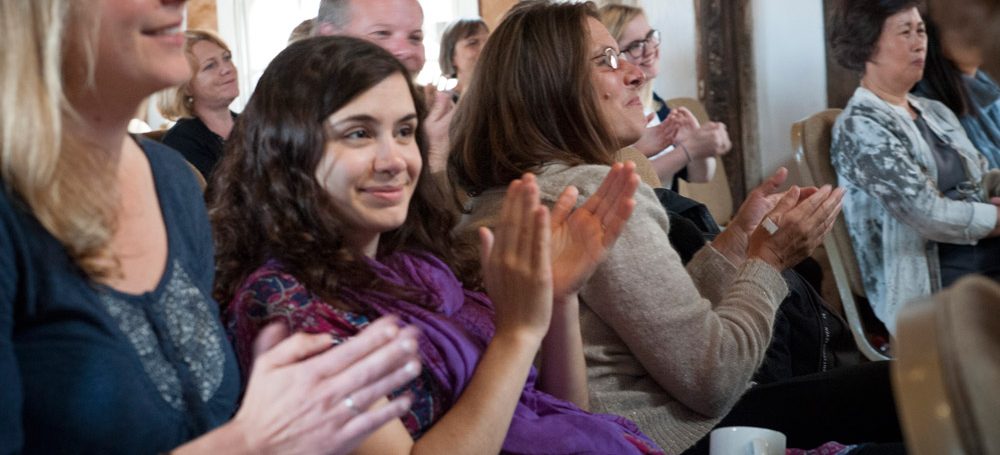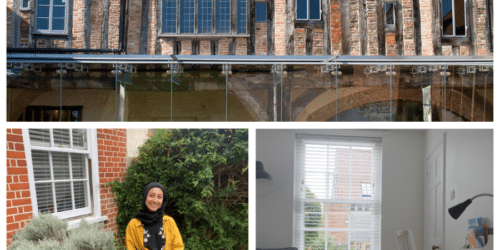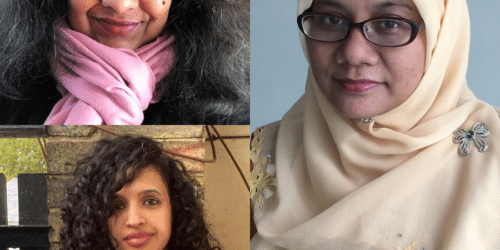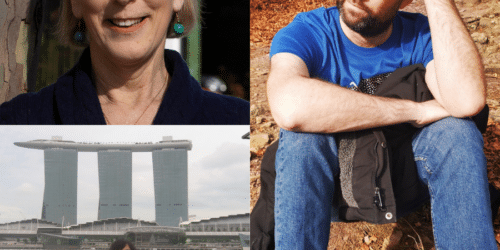
The BCLT International Literary Translation and Creative Writing Summer School took place between 24 – 30 July 2016 at the University of East Anglia and WCN Dragon Hall. WCN Communications Assistant Hannah Salvi attended for the first time on the Thursday, and shares her experiences below.
Having an interest in translation, literature (obviously) and also learning Italian (badly), I was thrilled to be given the opportunity to attend the British Centre for Literary Translation (BCLT) Summer School for a day.
The summer school is an excellent opportunity for writers and translators to get together and work collaboratively on hands-on projects.
The day started with creative writing workshops. There were three sessions, however I only managed to make it round to two of them. The first was with Cecilia Rossi, and looked at different ways of translating and interpreting texts creatively, by translating poems written in Medieval English into modern English. This involved guessing what the words meant through their sounds; which threw up some interesting interpretations, some of which were complete opposites!
It was then time to try out Oulipo N+7; where you replace each substantive noun in a text with the seventh one after it in the dictionary. It was at this point that I moved into another workshop, so unfortunately did not get to hear the results!
Sarah Bower’s workshop looked at the power of the lie. Taking a tale from the Brothers’ Grimm (which was interesting alone as these are translations in themselves), the class were asked to take one element as a lie and transform the story completely. Once again, the results were extremely varied, from tales of an Englishman, an Irishman and an Italian, to a violent encounter that was a mix between Tom and Jerry and the Terminator!
Both of these workshops captured the idea of starting with a base text, and then allowing your imagination to run wild. Many writers, and translators especially, can feel constricted by the words already on the page, so these exercises were excellent for letting go while still capturing the spirit and meaning of the source.
Writers, and translators especially, can feel constricted by the words already on the page
The afternoon workshops were broken up by a plenary session on Translation and Creativity (see link at bottom of page), chaired by Cecilia Rossi, with a panel consisting of Tiffany Atkinson (Professor in Creative Writing, UEA), Tom Boll (Director, Poetry Translation Centre) and Anna Metcalfe (UEA). All of them had different backgrounds, which made for an interesting conversation around the level of creativity involved in translation; the conclusion of which being that translators must in fact be extremely creative, and know etymology inside out, in order to create a new version of a piece of work and to come up with new ways of making a text come to life in another language. There was also talk of potential future projects involving ‘traditional creative writers’ working in partnership with translators from the inception of a text.
As I’m learning Italian, I decided in the afternoon to attend both of the multi-lingual workshops; partly for selfish reasons as the information in the sessions would be transferable to my own studies, but also because I was intrigued – how can a class work if everyone is translating from different languages? Where is the commonality?
It turns out they can work very well indeed. Both of the sessions (poetry and prose) were highly collaborative, with everyone assessing and collectively critiquing each other’s work. It was fantastic to hear all of the different ideas, and to have such dynamic conversations on the richness and breadth of language.
The day was incredibly interesting, both in terms of my own writing and seeing the workshops in action. Being relatively new to the WCN team (I have been here for just over a month), it was fantastic to see such great collective enthusiasm for literary translation, and to gain an insight into yet another aspect of the work between the Writers’ Centre and UEA.
About BCLT
The BCLT is Britain’s leading centre for the development, promotion and support of literary translation and contemporary writing from around the world. It is part of the School of Literature, Drama and Creative Writing at the University of East Anglia (UEA), and works in collaboration with Writers’ Centre Norwich.
You can listen to recordings of the plenary sessions on Soundcloud:
Translation and Creativity
Women in Translation







